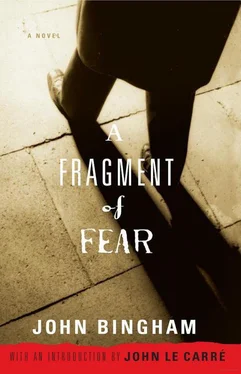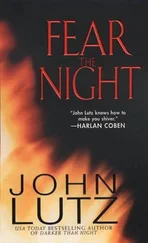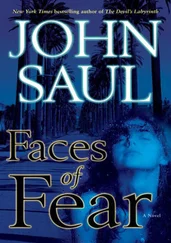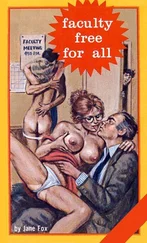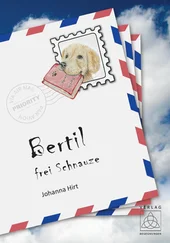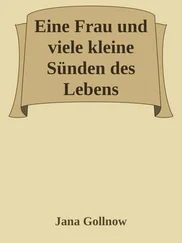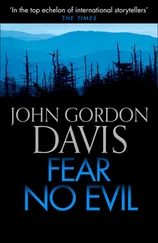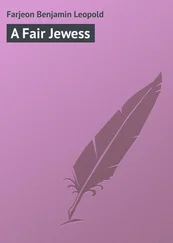John Bingham - A Fragment of Fear
Здесь есть возможность читать онлайн «John Bingham - A Fragment of Fear» весь текст электронной книги совершенно бесплатно (целиком полную версию без сокращений). В некоторых случаях можно слушать аудио, скачать через торрент в формате fb2 и присутствует краткое содержание. Жанр: Триллер, на английском языке. Описание произведения, (предисловие) а так же отзывы посетителей доступны на портале библиотеки ЛибКат.
- Название:A Fragment of Fear
- Автор:
- Жанр:
- Год:неизвестен
- ISBN:нет данных
- Рейтинг книги:3 / 5. Голосов: 1
-
Избранное:Добавить в избранное
- Отзывы:
-
Ваша оценка:
- 60
- 1
- 2
- 3
- 4
- 5
A Fragment of Fear: краткое содержание, описание и аннотация
Предлагаем к чтению аннотацию, описание, краткое содержание или предисловие (зависит от того, что написал сам автор книги «A Fragment of Fear»). Если вы не нашли необходимую информацию о книге — напишите в комментариях, мы постараемся отыскать её.
A Fragment of Fear — читать онлайн бесплатно полную книгу (весь текст) целиком
Ниже представлен текст книги, разбитый по страницам. Система сохранения места последней прочитанной страницы, позволяет с удобством читать онлайн бесплатно книгу «A Fragment of Fear», без необходимости каждый раз заново искать на чём Вы остановились. Поставьте закладку, и сможете в любой момент перейти на страницу, на которой закончили чтение.
Интервал:
Закладка:
He was a rugged man of about fifty, a member of the Italian Communist Party, with whom I had had long conversations on previous occasions. Outwardly sour and embittered, inwardly, I suspect as soft as butter, he ascribed any and every misfortune he had ever suffered or would suffer to the iniquities of the capitalist system.
His name was Mario Bartelli. Mario Bartelli always conceded that Vesuvius had done a good job in that it had destroyed the capitalists in Pompeii, Herculaneum, and other towns. But the whole thing had been too parochial. What was needed was another kind of eruption, which would destroy the whole rotten decadent system. For four days before the eruption, there had been earthquake rumblings, reminiscent of an earlier disaster, giving warning to the rich spivs, the clever dicks, the idle aristocracy who had time to think and organise, and what had happened? Why were no skeletons of horses found? Because all the horses had been commandeered by the rich.
On another occasion, entertaining in his way, as is every fanatic, he blamed his paucity of tips on victimisation by the Pompeii administration.
Guards in some sections with one or two special exhibits were sure of tips. The guard in the House of the Vetii, for example, was certain to win a daily quota for unlocking the cupboard which shielded his indecorous painting from eyes which might be shocked by it.
Mario had some Roman bread ovens and corn-grinding exhibits in his Section. You could see them from the pavement. No need to hand over lire to see bread ovens and corn-grinders.
It was the same when he had the Section which included the Amphitheatre. There were plenty of wine taverns in the Section, and plenty of graffiti on the walls. The Romans liked a drink on the way to and from the arena, and the drink emboldened them to scrawl slogans on the walls. But you could see the taverns and the graffiti for the price of the entrance ticket.
So there were no tips there either.
Guards were changed around, and so was he, but always to a tip-less section. It was clear to Mario Bartelli that he was the victim of anti-Communist discrimination.
For Mario, Pompeii represented meals of farinacious food and three rooms for himself and his family in a stuffy concrete building in Castellammare. And that was all Pompeii would ever mean to him.
I am in love with Pompeii, but Mario Bartelli hates the whole hot, arid dump. For him the problems of the present obliterate the past more effectively than Vesuvius has ever done.
As he approached and I went into the house where Mrs. Dawson had been killed, I could not help reflecting upon the unromantic conditions in which most murdered people are found: the deserted outhouse on a chicken farm, the crumpled sheets of the sickroom with the chipped crockery which contained the poison; the bramble bushes by the side of the muddy lane.
At Pompeii the surroundings were unique enough, but the uninteresting bare patch of parched earth and the sky into which the sightless eyes had gazed made it desolately similar to the scene of many another intolerable end.
I turned as Mario came in through the entrance of House No. 27 and for a moment I thought his soured and lined face showed some fleeting expression of pleasure, but I may have been mistaken. He crossed himself, Communist or not, in response to some deep-seated subconscious prompting, and I could tell from the glance of his eyes in which corner Mrs. Dawson’s body had been found.
For it was Mario Bartelli who had found her, twenty-four hours after her death, and for once he was on guard in a Section in which tips, from journalists and tourists, flowed freely.
We had a long talk together, and from what he said, and from what I knew of his character, I was able to form what I believe to be an accurate picture of the events of that terrible morning of September 11th. This I will put on record, for even now after some considerable time, I am not certain what the future holds for me.
At ten o’clock on the morning of September 11th the sun was already very hot. Mario Bartelli was seated on a low ruined wall almost opposite No. 27, in the shade cast by an adjacent house. He extinguished a cheap State-manufactured cigarette and put the butt in a tin box for subsequent re-rolling with other cigarette ends.
He idly watched Aldo, the guide, go past with a small party of American tourists, and, I have no doubt, wished them all ill, including Aldo, who consistently refused to join the Communist Party of Italy.
A moment or two later, he saw Aldo and his party cross the street a few yards away, going over from one steeply built pavement to another, walking clumsily on the great stepping-stones which at intervals link the two sides. Aldo paused, as he always did at this spot, pointing out the deep ruts in the roadway caused by the wheels of Roman chariots. Aldo’s voice droned on:
“It is often said, ladies and gentlemen, that Pompeii was destroyed by the eruption of Vesuvius on August the twenty-fourth, in the year A.D. seventy-nine. You have now seen that this is not true. Thanks to the lava and volcanic dust, Pompeii and Herculaneum were, in fact, preserved by the eruption, so that here, as nowhere else in the world, we can see how those old-time Romans lived their lives.”
I imagine that at this point Mario Bartelli spat, thinking that he, too, could be a guide and earn fat tips except that they wouldn’t much like what he would say.
“Two thousand people, to our certain knowledge, and probably more in the surrounding countryside, died during that terrible eruption,” droned Aldo. “Many were slaves looting the property of their owners.”
Doubtless, Mario Bartelli stirred irritably thinking bitterly that the slaves were in fact only retrieving the wealth which had been filched from their class. It was military action at its best. He heard Aldo’s voice rise as he reached his peroration.
“In a letter to Tacitus, ladies and gentlemen, Pliny the Younger, who was in nearby Misenum, said the world became quite black, not merely like a dark night, but like a room without windows. At one moment the sky was clear. Suddenly there was a loud and terrible crack, and gradually the sky darkened with stones and ashes. The sea receded, stranding maritime creatures. At first there was a horrible black cloud, rent by shafts of darting flames. Fleeing chariots, on seemingly flat ground, were rocked and flung about like toys, so that even heavy stones could not keep them steady. People screamed and called to each other in the gathering gloom. Apart from the looting slaves, there were others who stayed in Pompeii. The sick and infirm. Those who hoped it would quickly pass and remained in their homes.
“Those homes, ladies and gentlemen, were buried to a depth of many metres, and those people who were not crushed by falling walls and pillars were killed by the foul poisonous fumes which accompanied the ashes. And in the end there was no escape. Only death in the darkness which was like a room without windows.”
This bit was always Aldo’s great moment. I have myself heard his performance, and very fine it is, his voice rising and falling with simulated fervour. When he came to the last sentence he always spoke in a low tragic voice, hardly louder than a whisper, and followed it with a silence, as if in memory of those who had died.
It was at this point, and while he was weighing in his mind the words of Lenin, who said that in certain circumstances one could have a peaceful transition to Socialism, that Mario Bartelli saw the white butterfly, lost in the nectarless wastes of Pompeii, and a girl of about nine who had lagged behind Aldo’s party, and was trying to catch the insect.
Like most Italians, Mario loved children.
He watched as the butterfly settled on a stone and the child cautiously approached, and he smiled when the butterfly escaped at the last moment.
Читать дальшеИнтервал:
Закладка:
Похожие книги на «A Fragment of Fear»
Представляем Вашему вниманию похожие книги на «A Fragment of Fear» списком для выбора. Мы отобрали схожую по названию и смыслу литературу в надежде предоставить читателям больше вариантов отыскать новые, интересные, ещё непрочитанные произведения.
Обсуждение, отзывы о книге «A Fragment of Fear» и просто собственные мнения читателей. Оставьте ваши комментарии, напишите, что Вы думаете о произведении, его смысле или главных героях. Укажите что конкретно понравилось, а что нет, и почему Вы так считаете.
